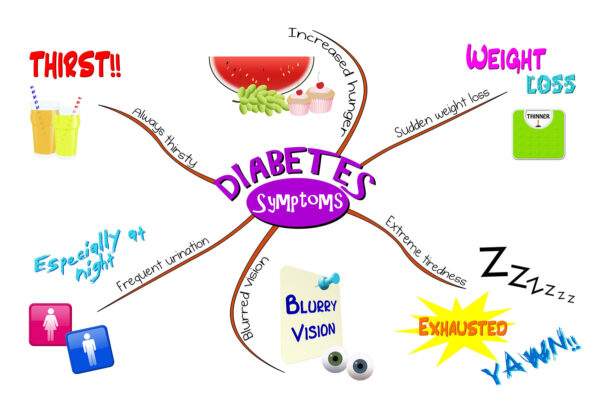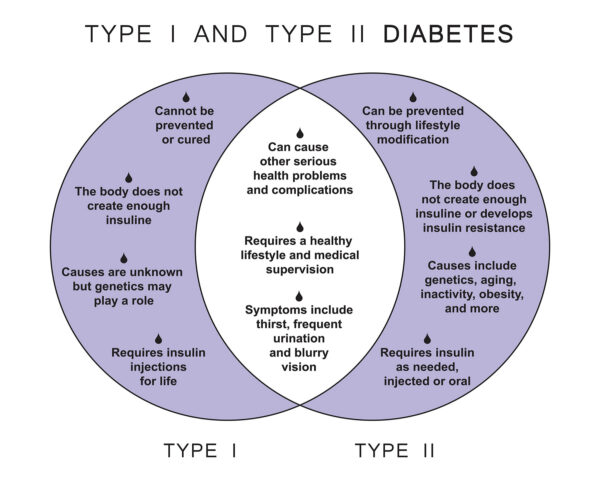Digestive health is a critical aspect of overall well-being, and for individuals living with diabetes, it’s essential to pay attention to how diabetes can impact various bodily functions, including the digestive system. One often overlooked aspect of this is diabetic bowel movements, which can undergo changes due to the condition. In this article, we’ll delve into the topic of diabetic bowel movements, understand the digestive changes associated with diabetes, and explore strategies for managing gastrointestinal health.
Diabetes and Digestive Health
Before we dive into the specifics of diabetic bowel movements, it’s essential to understand the connection between diabetes and digestive health. Diabetes, particularly type 2 diabetes, can affect various parts of the digestive system:
1. Delayed Gastric Emptying (Gastroparesis): Gastroparesis is a condition where the stomach takes longer than usual to empty its contents into the small intestine. High blood sugar levels can damage the vagus nerve, which controls the muscles of the stomach and intestines. This can result in delayed digestion and a range of digestive symptoms.
2. Constipation: Diabetes can lead to slower movement of food through the digestive tract, which can contribute to constipation. Additionally, some diabetes medications, especially those containing opioids, may increase the risk of constipation.
3. Diarrhea: In some cases, diabetes can lead to chronic diarrhea, often referred to as diabetic diarrhea. This can be caused by nerve damage or changes in the gut’s ability to absorb nutrients.
4. Bowel Incontinence: Nerve damage in diabetes, known as neuropathy, can affect the muscles of the rectum and anus, leading to bowel incontinence or difficulty controlling bowel movements.
Diabetic Bowel Movements: What to Expect
Understanding how diabetes can affect bowel movements is crucial for managing gastrointestinal health. Here’s what individuals with diabetes may experience concerning bowel movements:
1. Changes in Stool Consistency: Diabetes can lead to variations in stool consistency. Some individuals may experience loose stools or diarrhea, while others may encounter chronic constipation.
2. Frequency of Bowel Movements: Diabetes can cause changes in the frequency of bowel movements. Gastroparesis, for example, may result in fewer bowel movements, while other individuals may have more frequent episodes.
3. Difficulty Emptying the Bowels: Gastroparesis can make it challenging to empty the bowels fully. This can lead to a feeling of fullness or discomfort.
4. Incontinence Issues: Diabetic neuropathy can affect the muscles responsible for controlling bowel movements, potentially leading to incontinence problems.
Managing Diabetic Bowel Movements
If you’re living with diabetes and experiencing changes in your bowel movements, here are some strategies to help manage your gastrointestinal health:
1. Blood Sugar Control: Keeping your blood sugar levels within the target range recommended by your healthcare provider is crucial for managing diabetes-related digestive issues.
2. Dietary Modifications: Work with a registered dietitian to develop a meal plan that suits your specific digestive needs. This may include adjusting your fiber intake and avoiding trigger foods.
3. Medication Adjustments: If necessary, discuss medication adjustments with your healthcare provider. Some diabetes medications or additional medications may contribute to digestive problems.
4. Regular Physical Activity: Incorporating regular physical activity into your routine can aid digestion and help manage diabetes.
5. Hydration: Staying well-hydrated is essential, especially if you’re dealing with diarrhea or constipation.
6. Stress Management: Stress can exacerbate digestive issues. Explore stress-reduction techniques such as mindfulness, meditation, or yoga.
7. Regular Check-Ups: Attend regular check-ups with your healthcare provider to monitor your diabetes management and address any digestive concerns.
In conclusion, understanding how diabetes can affect bowel movements and overall digestive health is crucial for individuals with diabetes. By managing blood sugar levels, making dietary adjustments, and adopting a healthy lifestyle, you can mitigate the impact of diabetes on your digestive system and enjoy better gastrointestinal health. If you’re experiencing significant or persistent digestive issues, consult your healthcare provider for tailored guidance and support.






